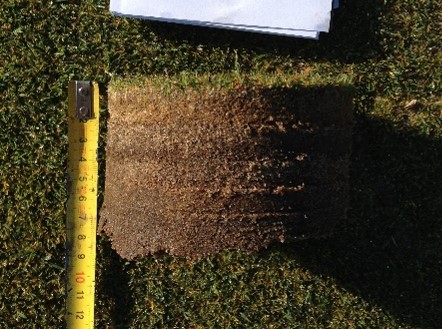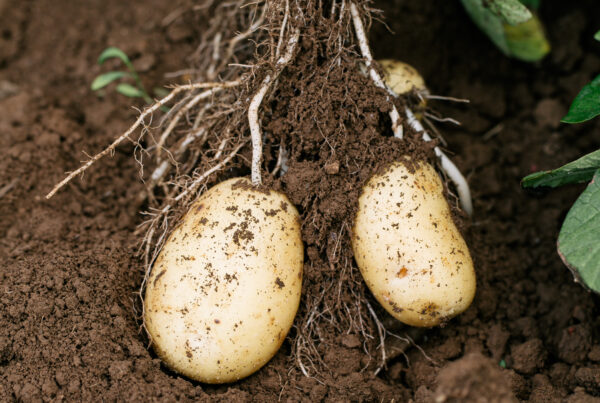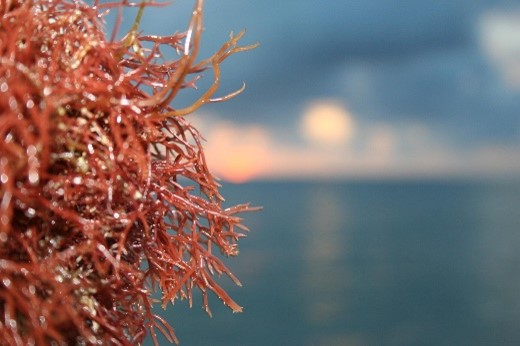When the cold season arrives, the grass enters a phase of weak or no growth. During this period, it becomes particularly sensitive to climatic stresses such as excess humidity or frost.
The use of sports pitches during this season exacerbates the situation. The cause: compaction induced by trampling and uprooting. Trampling during wet periods breaks the structure of the top layer profile, causing fine particles to rise up and obstructing the porosity of the soil, resulting in water accumulating on the surface.
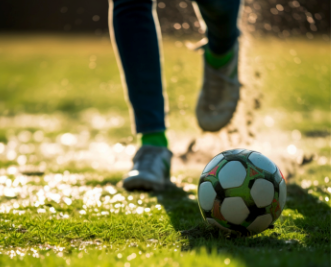
Trampling during wet periods breaks the structure of the top layer of the profile of the soil
At the end of winter, compaction of the surface layer also slows down the restarting of the soil’s biological activity by asphyxiating the environment, leading to mineralisation and nutrition problems for the turf, problems accentuated by the leaching of nutrients such as nitrates and sulphates during the winter. Another disadvantage of insufficient biological activity in spring is the slowdown in the decomposition of organic matter such as mowing residues. The thatch build-up accentuates asphyxiation and encourages the onset of disease.
In short, a negative cycle sets in, leading inexorably to a deterioration in the quality of the turf!
That’s why, after a cold, wet winter, it’s essential to approach the new season with a tailored nutrition programme, thanks to the Marathon® ALGAE range.
A nutrition programme to match the situation
As soon as the grass emerges from winter, it is important to act on two important parameters: the supply of nutrients to support the increasing needs of the turf, and the stimulation of biological activity in the soil to boost the mineralisation of organic matter. That’s the aim of the Marathon® ALGAE range of organo-mineral fertilisers.
Thanks to its patented XSER® complexation technology, Marathon® ALGAE releases nutrients sequentially into the soil solution, gradually meeting the growing needs of the turf, while protecting the nutrients from leaching. This stimulates the turf’s growth, regenerates its roots and repairs the plant cover damaged by the winter.
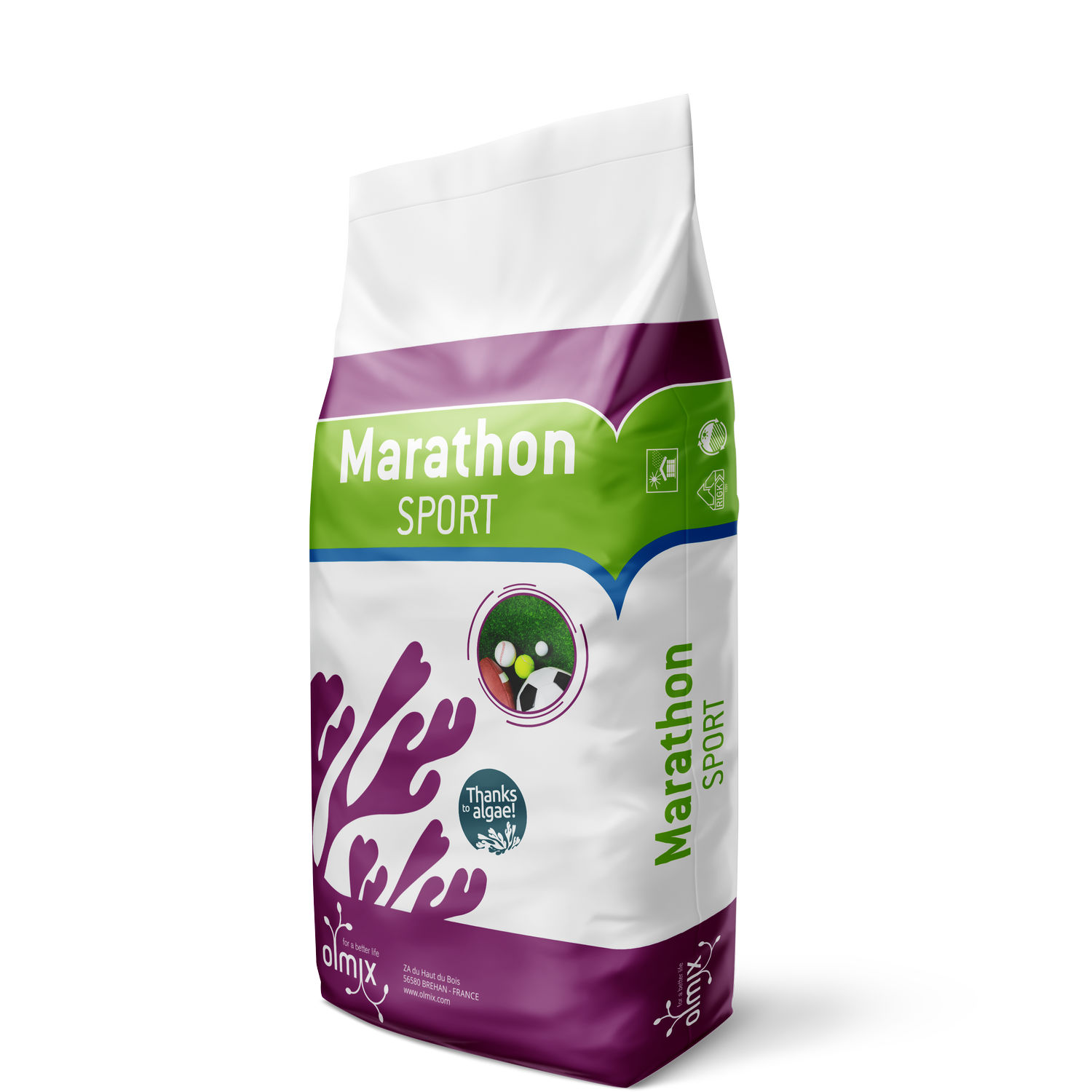
The organic component of Marathon® ALGAE has two special features. The first is that most of it comes from a dehydrated source rather than a composted one. This characteristic preserves all the reactivity of organic matter for a rapid effect on stimulating soil microflora.
The second special feature is the addition of SEADRY® dry seaweed extract, which is rich in specific molecules (sulphated polysaccharides) and rare trace elements (such as vanadium) favourable to the development of microbial activity in the soil and root hairs.
The different NPK balances available in the Marathon® ALGAE range can be used to support turf throughout the year, from regeneration at the end of winter, through strengthening resistance to summer climatic stress (high temperatures and water stress), to preparing reserves at the end of the season.
The Marathon® ALGAE range is available in two particle sizes: 0.7 – 2 mm for greens, elite and honour pitches, and 2-4 mm for fairways, training courses, parks and gardens.
With such a range of solutions, sports ground managers have an effective tool at their disposal to create the right conditions for the development of high-quality turf that meets their requirements.
